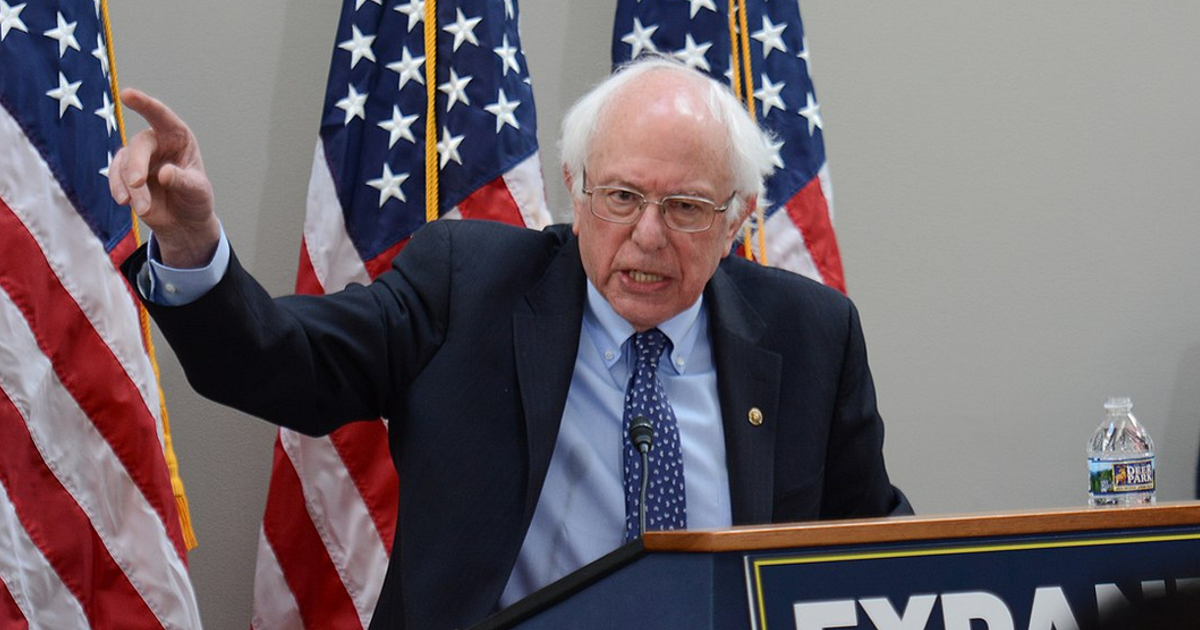|
By Ryan McMaken
The Washington Post reported last week that some workers on the Bernie Sanders campaign for calling for a wage increase to a the equivalent of 15 dollars per hour. This, of course, is the hourly rate which Sanders has long pushed for in legislation and on the campaign trail. But that's more than what many Sanders employees make. Many campaign workers are salaried, so the problem lies in the fact that total campaign salaries, when calculated on a per-hour-worked basis, come out to less than $15 per hour. Many employees work around 60 hours per week — as is often typical for full-time workers on a presidential campaign. As reported by the Des Moines Register, For a staffer working 40 hours a week, [the typical campaign salary] comes out to about $17 an hour. But 40-hour workweeks on presidential campaigns are rare.
So, some Sanders employees have complained they aren't earning a "living wage" and have demanded Sanders raise wages immediately. Recognizing the bad optics of the situation, Sanders apparently began looking for a way to raise the per-hour wage.
But how to do it? If we use the typical rhetoric surrounding the minimum wage debate, then the answer is simple: the employer — in this case, Bernie Sanders — should take a pay cut or reduce his own wealth in order to pay employees more. After all, this is what we typically hear about why employees are not paid more: they are only paid so "little" because the owners are "greedy" or unwilling to share the wealth. In Sanders's case specifically, we could conclude he should be willing to sell off some of his substantial real estate holdings or devote some of his income from book sales to paying his employees more. So what is Sanders's solution? According to the Register: Sanders said the campaign will limit the number of hours staffers work to 42 or 43 each week to ensure they're making the equivalent of $15 an hour.
In other words, the campaign will do less in order to pay each employee more on an hourly basis.
For salaried workers at least, the employees won't be paid more overall, although they will get more per hour. There are a couple of things we can learn from this. First of all, of course, we learn that Sanders is not willing to put his money where his mouth is. He's not willing to use any additional portion of his personal wealth to supplement worker wages. He is willing to cut back on campaign activities to make up the difference. Ironically, however, in non-monetary terms, this may turn out to represent a pay cut for campaign workers. After all, it is likely that most people who go to work for the Sanders campaign do so because they want to see Sanders elected. Yes, they want to receive money wages, and many may also be interested in building a career as a professional campaign consultant. But for many of these workers, they also receive payment in the form of getting Sanders elected and in "getting the message out." But if paying a higher per-hour wage means cutting back total campaign work, then this hobbles the campaign and means there will be less of that "getting the word out," and it may also mean Sanders ultimately loses the race. Thus, by demanding $15 per hour, the employees are reducing their non-monetary compensation. Moreover, if the Sanders campaign loses, this will have significant impacts on the ability of many campaign workers to obtain jobs within a new Sanders administration as administrators and political advisors. That is, a Sanders loss will mean Sanders workers will have greater trouble finding new jobs as government employees or on other future campaigns.So losses will be monetary as well. Read the rest of this article at The Mises Institute. Comments are closed.
|
Archives
July 2024
|


 RSS Feed
RSS Feed



